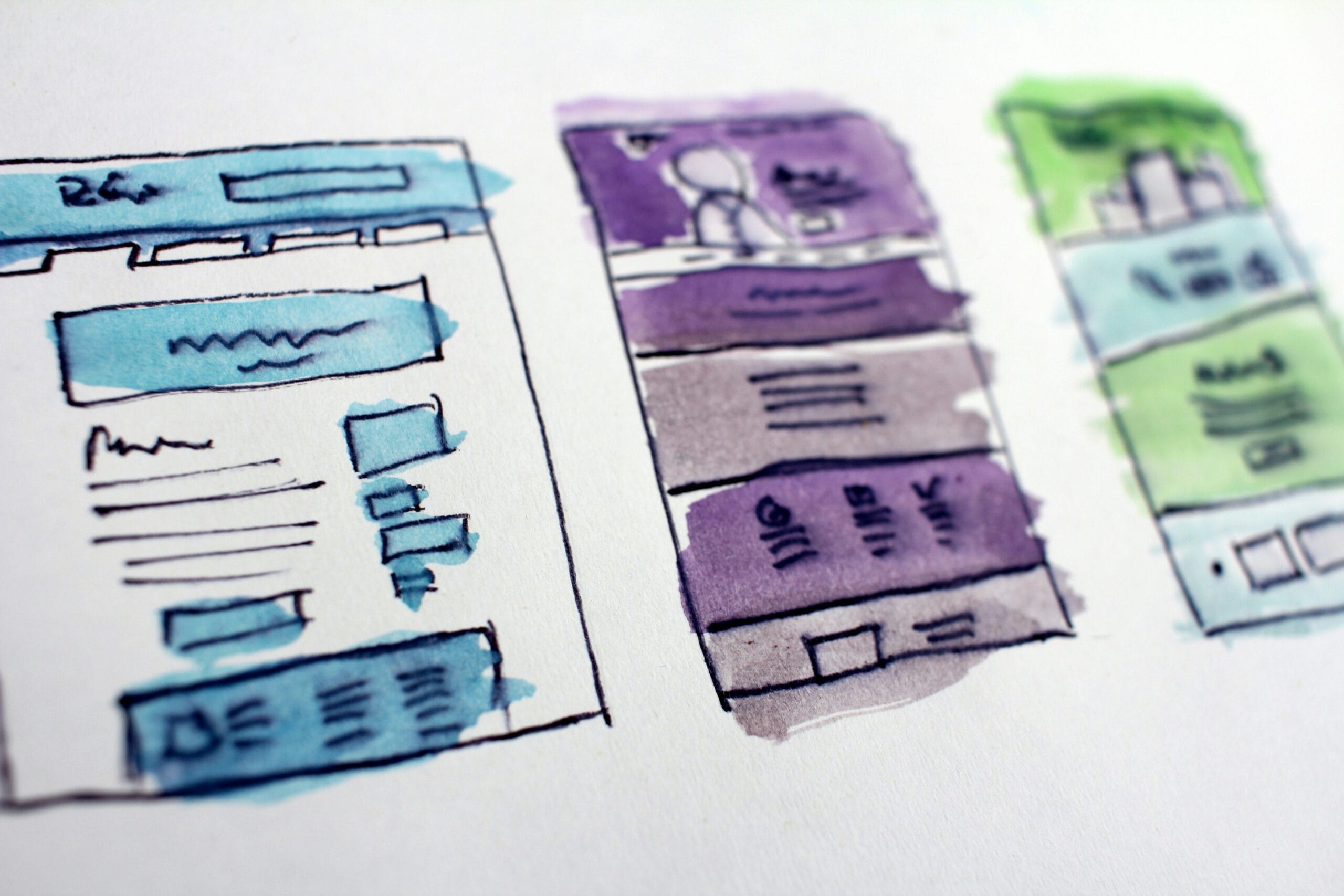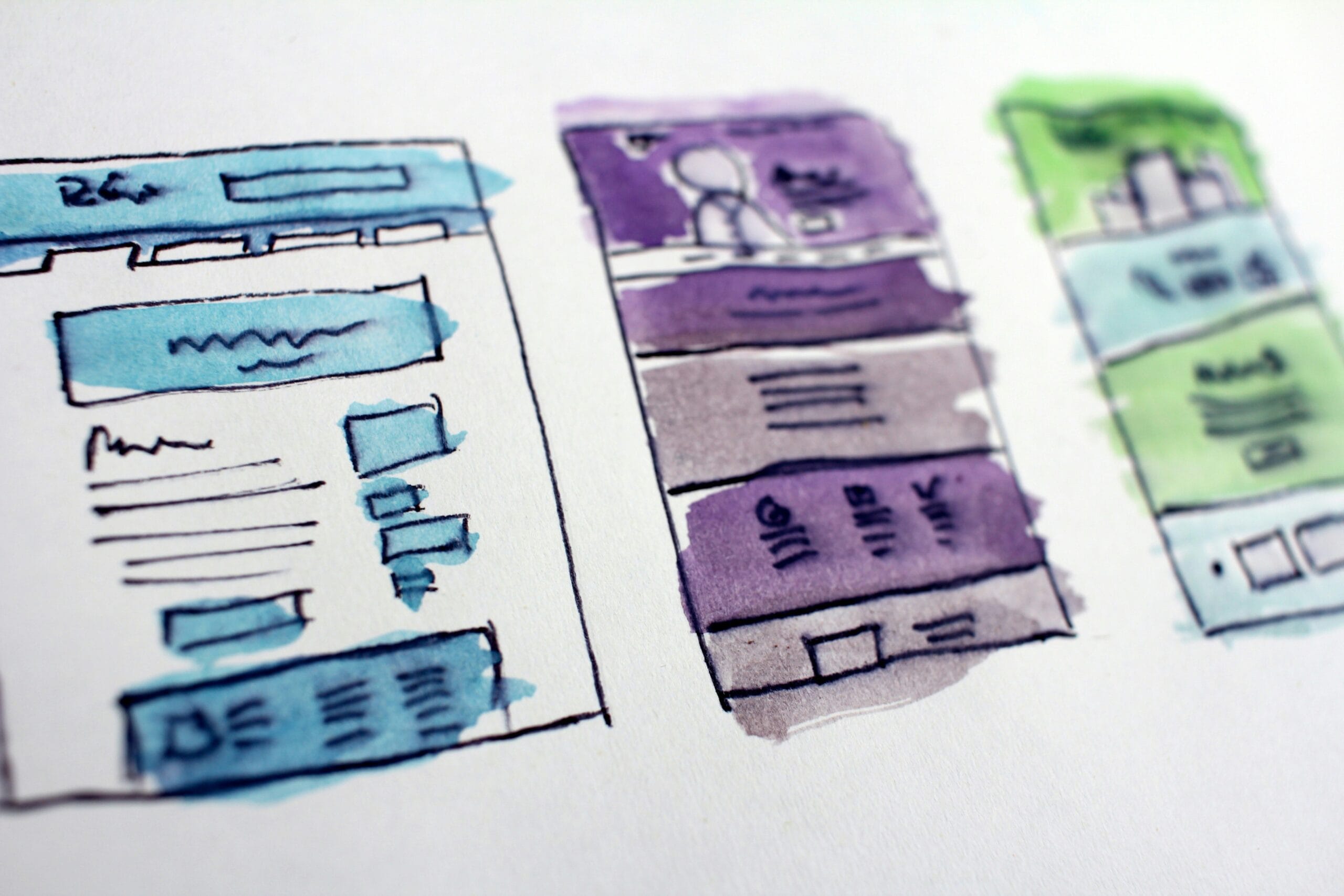
Understanding Website Design Basics
Website design is a multifaceted discipline that combines aesthetics, functionality, and user experience to create visually appealing and effective online presences for companies. A solid foundation in the principles of website design is essential for anyone aspiring to become a professional in this field. Among the core components of website design are HTML, CSS, and user experience (UX) design, each playing a vital role in the development of a successful website.
HTML, or HyperText Markup Language, serves as the backbone of any website. It structures the content, allowing developers to create headings, paragraphs, links, and images that form the primary elements of a webpage. Understanding HTML is essential, as it lays the groundwork for more advanced design techniques. In conjunction with HTML, CSS (Cascading Style Sheets) is indispensable for controlling the visual presentation of a website. CSS allows designers to apply styles such as colors, fonts, and layouts, ensuring that the website is not only functional but also visually attractive.
User experience (UX) design significantly impacts how visitors interact with a website. Focusing on the user journey, UX design considers aspects such as intuitive navigation, accessibility, and responsive design to enhance the overall experience. This approach is critical in retaining visitors, thereby benefiting the company by increasing engagement and conversion rates. A professional website designer must prioritize user experience to ensure that the website functions well across various devices and screen sizes.
Lastly, it is crucial for aspiring professionals in website design to recognize the importance of continuous learning. The digital landscape is ever-evolving, with new design trends and technologies emerging regularly. Staying updated not only enhances one’s skill set but also ensures that the designs remain relevant and competitive in an increasingly crowded market.
The Importance of Specialization in Website Design
For business owners, the decision to develop a website can be pivotal in establishing an online presence. While some might consider undertaking this task independently, relying on specialized companies for web design offers numerous advantages that can significantly enhance a company’s overall effectiveness and growth.
One of the primary benefits of hiring professional web design services is access to industry expertise. Specialized companies are well-versed in the latest design trends, technologies, and best practices essential for creating an engaging and functional website. Their experience enables them to deliver tailor-made solutions that align with a business’s unique needs and objectives. This expertise also translates into more innovative design strategies that might not be apparent to those with limited design experience.
In addition, professionals in the field utilize advanced design tools and software that can dramatically improve the quality of the final product. These tools enable specialized companies to create visually appealing, responsive, and user-friendly websites that not only meet aesthetic standards but also enhance user experience. Furthermore, they stay updated with the ever-evolving landscape of web technology, ensuring that the designs remain relevant and competitive.
By entrusting website design to experts, business owners can redirect their focus toward core activities that drive growth. Managing a company requires significant attention to various operational aspects, and taking on the additional responsibility of website design can dilute effort and efficiency. Engaging a specialized company not only ensures a professional outcome but also affords business owners the peace of mind to concentrate on strategic initiatives.
In conclusion, the specialization in website design is paramount for business owners aiming for a successful online presence. By opting to hire professionals, company owners can leverage industry expertise, utilize advanced tools, and maintain their focus on essential business operations, ultimately leading to a superior website that reflects their brand and meets customer expectations.
Developing Skills and Gaining Experience
To achieve proficiency in website design, aspiring professionals must adopt a systematic approach to skill development. The first step involves harnessing the power of online learning resources. Platforms such as Coursera, Udemy, and LinkedIn Learning offer comprehensive courses that cover various aspects of web design—from fundamental principles to advanced techniques. These platforms provide flexibility, allowing individuals to learn at their own pace and revisit complex topics as needed.
In addition to formal courses, tutorials available on platforms like YouTube or design websites can be incredibly beneficial. These resources often present hands-on projects that can enhance a learner’s technical abilities in real-world scenarios. Engaging with a variety of resources helps to build a robust understanding of design tools, coding languages such as HTML and CSS, and user experience (UX) principles that are essential for any professional in the field.
Equally important as theoretical knowledge is practical experience. Individuals should seek out opportunities to apply their skills through real projects. Internships, apprenticeships, or volunteering for local non-profit organizations can provide valuable experience and help build a professional network within the industry. These experiences not only enhance technical abilities but also foster collaboration and communication skills, which are vital for effective teamwork in professional settings.
Moreover, personal branding and portfolio development play critical roles in establishing oneself as a professional in website design. A well-crafted portfolio showcasing completed projects demonstrates an individual’s capability to potential clients or employers. This portfolio should reflect a range of skills, creativity, and adaptability, allowing others to gauge the designer’s style and proficiency. By actively participating in design communities and seeking feedback, individuals can refine their skills and evolve their professional identity within the web design realm.
Making the Decision: DIY vs. Hiring a Professional
When it comes to the design of a website, business owners often face the dilemma of whether to embark on a do-it-yourself (DIY) approach or to hire a professional design company. Each option comes with its own set of advantages and disadvantages, which must be weighed carefully. Evaluating personal skills, time availability, and overall business objectives is crucial in making this decision.
A DIY approach can be appealing for small business owners, especially those who have some level of technical proficiency or creativity. Utilizing various online platforms and resources, one can achieve a basic website design without incurring significant costs. However, this route can be time-consuming and may result in a website that lacks the professional polish and functionality that users expect. Additionally, one must consider that limited knowledge of design principles may lead to ineffective user experiences, which can adversely affect business outcomes.
On the other hand, hiring a professional web design company can alleviate the burden of creating a website from scratch. A specialized team brings expertise in design, user experience, and the latest web technologies, ensuring that the website is not only visually appealing but also optimized for search engines. When searching for a suitable agency, business owners should assess portfolios, read client testimonials, and conduct interviews to gauge the potential partner’s understanding of the company’s vision and goals.
Ultimately, making an informed decision on whether to design a website in-house or to hire a professional requires introspection and consideration of the specific needs of the business. By carefully considering both options and weighing the respective pros and cons, business owners can better navigate the complexities of website design and align their decisions with their strategic objectives.


